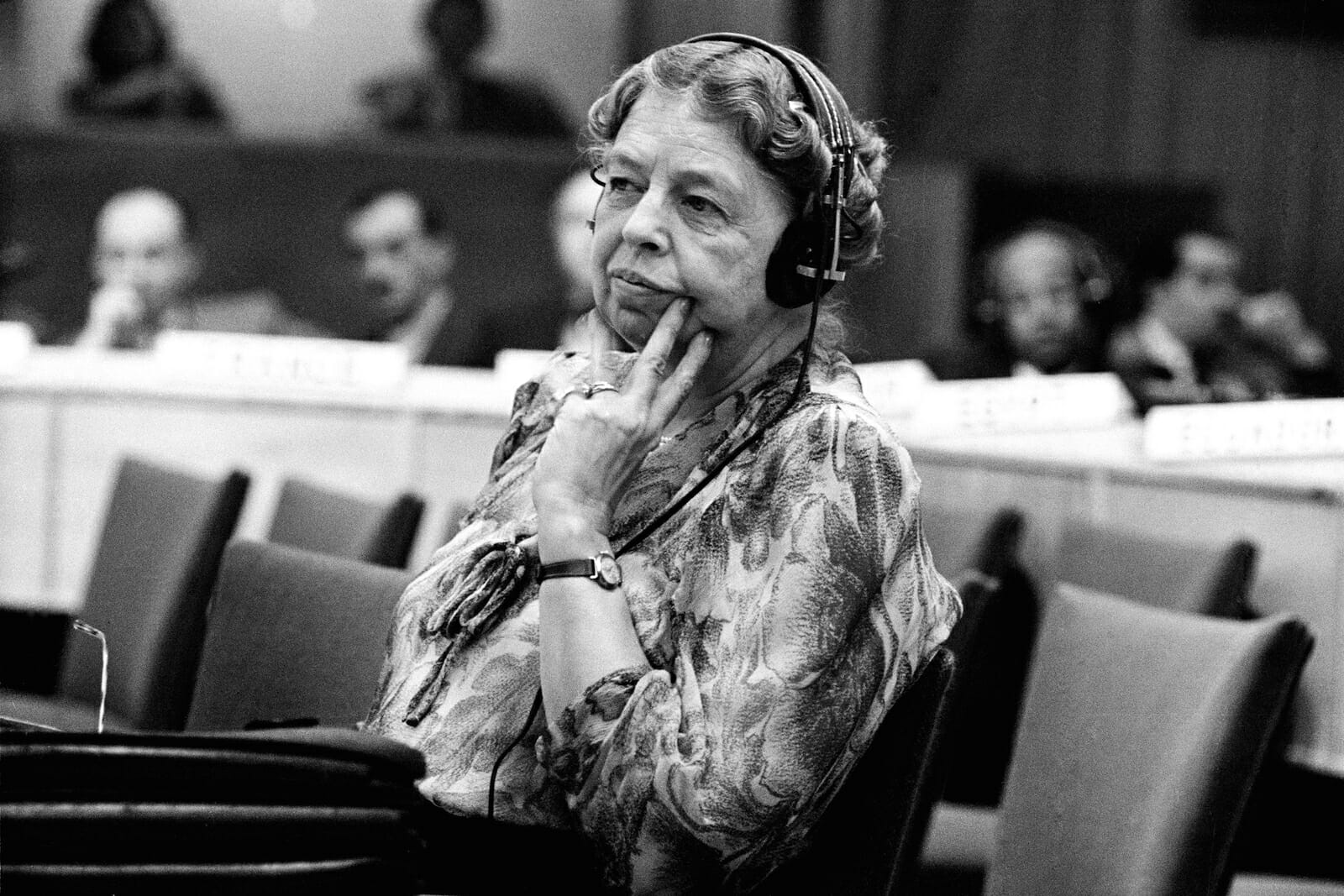
UN Day: A Look at the UDHR and Applying it to the Case of Jamal Khashoggi
October 24 is a special day on the calendar for those who support the United Nations. This day marks the signing in 1945 of the UN Charter in San Francisco, where 50 countries united in their mission to establish the world body. This year takes on added significance as it coincides with the 70th anniversary of the Universal Declaration of Human Rights (UDHR).
Seventy years ago, former First Lady Eleanor Roosevelt, First Chairperson of the Commission on Human Rights – responsible for the drafting of the UDHR, delivered the following remarks at the UN on March 27, 1958: “Where, after all, do universal human rights begin? In small places, close to home – so close and so small that they cannot be seen on any maps of the world. Yet they are the world of the individual person; the neighborhood he [or she] lives in; the school or college he [or she] attends; the factory, farm, or office where he [or she] works…Unless these rights have meaning there, they have little meaning anywhere.” Powerful words that should resonate to every corner of the globe.
The UDHR is not a treaty, so therefore it is not a legally binding document; however, States – as UN members – are expected to uphold the core values inscribed within the UDHR. What are the core values of the UDHR? Dignity and justice, development, environment, culture, gender and participation.
The UN has three key objectives in connection with the 70th anniversary of the UDHR. The first is to promote the UDHR by increasing the public’s knowledge of the document and educating people as to how it affects them. Second, the UN seeks to engage the global community to protect human rights. Third, reflect upon the UDHR and look closely at what has been achieved to date and what are the challenges that lie ahead.
Promote, engage and reflect are the keywords encompassing the UN’s goal to achieve universal human rights. In late September, 14 nations and the European Union launched an initiative called “The Good Human Rights Stories” with the intent of fortifying individual rights and energizing nations to respect these rights.
What does the UDHR specifically state regarding how countries should conduct themselves? It lays out in no uncertain terms in its Preamble that “the peoples of the United Nations have in the Charter reaffirmed their faith in fundamental human rights, in the dignity and worth of the human person and in the equal rights of men and women and have determined to promote social progress and better standards of life in larger freedom.”
The principles underlying the UDHR are quite sound, but, states do not always adhere to them. For example, Article 5 states that “No one shall be subjected to torture or to cruel, inhuman or degrading treatment or punishment in all their forms.” Saudi Arabia is a case in point as to how states violate the principles and norms underlying the UDHR.
The Mideast nation is one of a handful of states that were not signatories to the UDHR. Despite its objections, as a UN member state, as we know, they have a duty to uphold its core values. However, unfortunately, the opposite is true. The Kingdom of Saudi Arabia has violated the human rights of women, people of conscience, and have threatened the family members of expatriates in exchange for their silence.
In recent days, we have all seen and heard the news account of the death of The Washington Post columnist, Jamal Khashoggi, at the hands of Saudi Arabia. The Middle East nation violates every norm of civility.
The Khashoggi case was just a continuation of their abusive treatment of individual rights. This tragedy should shine a bright light upon this nation. Leaders of civilized nations around the world should speak out forcefully against them. Some have done so, but the leader of the free world – the United States – has bought the company line emanating from Saudi Arabia.
The United Kingdom, France and Germany issued a joint statement calling for a thorough response from the Saudis as to the nature of what happened to Jamal Khashoggi. But, like the White House, will undoubtedly place economic rights above individual rights. It’s high time that the Saudis are held to account by civilized nations of the world in the true spirit of the UDHR and Eleanor Roosevelt’s vision.
